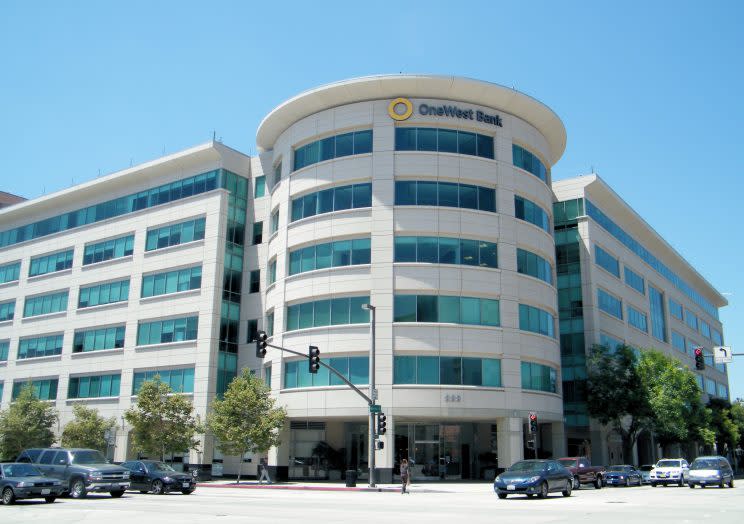Steve Mnuchin, Trump’s Treasury pick, has a checkered history in Hollywood
On July 17, 2015, less than two weeks before the film company Relativity Media declared bankruptcy, one of its lenders, OneWest Bank, swept $17.9 million out of a Relativity account meant to pay fees to producers, writers, performers and other staffers who worked on the company’s movies. During the next two months, OneWest swept another $32 million out of Relativity accounts, leaving the company desperate for cash to pay hundreds of other creditors.
“This liquidity crisis caused the debtors to largely have to stop paying many vendor bills, to postpone production of certain film projects, and to postpone the release of certain completed films,” a restructuring expert hired by Relativity wrote in a Chapter 11 filing when the company declared bankruptcy.
OneWest was owned by Steve Mnuchin, Donald Trump’s nominee for Treasury Secretary, and a handful of other wealthy investors. Mnuchin is as qualified for the job Trump has offered him as any other recent Treasury Secretary, with an impressive resume as a well-connected Wall Street money man. His father, Robert Mnuchin, was a top trader at Goldman Sachs who later became a renowned art dealer. The younger Mnuchin graduated from Yale and eventually became a partner at Goldman, like his father. Then he left for the hedge fund world, working with icons such as George Soros (one of the biggest Democratic megadonors) and John Paulson, the billionaire who has been one of Trump’s top advisors. Mnuchin joined Trump’s team over the summer as its chief fundraiser.
But Mnuchin’s dalliance with Relativity appears to have been a rare blunder in an otherwise shrewd career as an investor. Mnuchin started his own hedge fund, called Dune Capital Management, in 2004, with one of his earliest investments being a stake in a group of films issued by Twentieth Century Fox, including the hit Avatar. A huge opportunity arose in 2008 when IndyMac, a big California bank, went bust, and there were few investors with the guts to buy bank assets amid a wipeout in financial markets. Mnuchin put together a group including Soros, Paulson and investor Chris Flowers, who bought IndyMac for $1.55 billion.
They renamed the bank OneWest, and with help from the FDIC, shored up its assets. That included a lot of foreclosures on bad loans IndyMac never should have made, which brought protesters to Mnuchin’s $26 million Bel Air mansion, after he moved from New York to Los Angeles in 2009. “It was terrible,” he told Bloomberg in 2012. “Something I never want to experience again.”
Mnuchin also dove deeper into film financing after moving west. He funded two firms—Dune Entertainment and Rat-Pac Dune Entertainment—that helped fund movies such as “Suicide Squad,” “American Sniper” and “Sully.” Warren Beatty gave him a cameo appearance in his new film, “Rules Don’t Apply” (yes, irony alert). In 2014, Mnuchin, 53, divorced his wife Heather, mother of their three kids, after a 15-year marriage. He is now engaged to Louise Linton, a 35-year-old Hollywood figure who describes herself as an “actress-producer-lawyer.”
In the fall of 2014, Mnuchin, through OneWest and Dune Capital, became an investor in Relativity Media, the upstart film company run by Ryan Kavanaugh, a brash and flashy entrepreneur who shook up the film industry–for a while. Mnuchin reportedly invested at least $80 million in Relativity, and became its non-executive chairman. Relativity was struggling at the time, burning through cash, even as Kavanaugh talked up the prospects of going public and becoming as big as studio giants such as Twentieth Century Fox or Columbia.
Relativity was running out of money in the summer of 2015, which put Mnuchin in a problematic position. A year earlier, the lender CIT had agreed to purchase OneWest for $3.4 billion—a 219% return on the $1.55 billion Mnuchin and his fellow investors paid for the bank in 2009. That deal was poised to close just as Relativity was going under—and OneWest had millions of dollars at stake. Mnuchin presumably had privileged information about how dire Relativity’s finances were, and how long the company could hold out.
On May 29, 2015, Mnuchin quietly resigned from Relativity. During the next few days, according to court documents, Relativity agreed to a series of “forebearance agreements” that, among other things, allowed OneWest to sweep all the money in the company’s accounts. That set the stage for OneWest to claim as much as $50 million of Relativity’s money. “This provision effectively removed a cash flow source of the debtors and thus further strained the debtors’ already problematic liquidity situation,” one document declared.

A lawyer for an unnamed creditor accused Mnuchin and OneWest of offering themselves preferential treatment. “This is an obvious case of a preference,” the attorney told Variety in August of 2015. “The bank he is affiliated with sweeps up every dime from these two accounts. That is money the company could have used to preserve itself.” Other reports suggested Kavanaugh felt betrayed by Mnuchin, his former partner.
But there’s no evidence from the bankruptcy documents that Mnuchin or OneWest ever had to pay any of that money back. Meanwhile, CIT’s acquisition of OneWest closed as expected on August 3, 2015. Mnuchin became a board member and vice chairman at CIT when the deal closed. He’s still a board member, but he relinquished the role of vice chairman earlier this year.
Mnuchin reportedly lost $80 million on his investment in Relativity, though the sweeps of $50 million or so may have limited his losses. His share of the proceeds from the OneWest sale, while private, may have amounted to several hundred million dollars, anesthetizing the pain caused by Relativity. As for Relativity, it emerged from bankruptcy this past March, with fresh financing. Unless there’s a dystopian sequel, it sounds like a happy ending.
Contact the writer: [email protected].
Rick Newman is the author of four books, including Rebounders: How Winners Pivot from Setback to Success. Follow him on Twitter: @rickjnewman.
